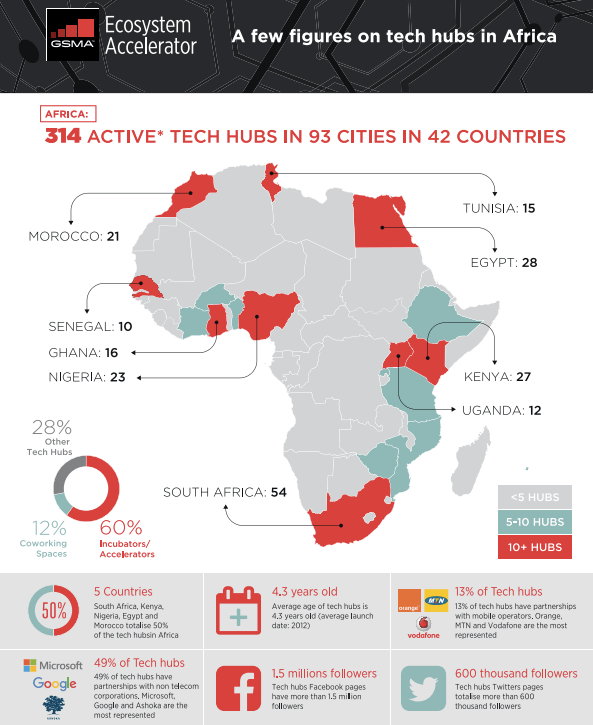
After a surprise Nigeria visit to meet with techies in Lagos, Mark Zuckerberg took his Africa tour to Kenya this Thursday. There the Facebook CEO visited the iHub innovation space, reviewed the BRCK mobile Wi-Fi device, had lunch with Kenyan ICT Cabinet Secretary Joseph Mucheru, and met with tech leaders Juliana Rotich and Erik Hersman.
Like the Lagos expedition, the trip was unannounced. “Originally, we knew that Facebook’s Ime Archibong was coming in,” said Hersman (a co-founder of iHub), “but we didn’t know about Mark’s visit until the last minute.” Archibong is Facebook’s Strategic Partnerships Director.
Though no formal business commitments are planned on Zuckerberg’s first Kenya visit (something Facebook reps confirmed to TechCrunch), Hersman believes it is likely a precursor.
“Look, these meetings in Nigeria and Kenya, it’s largely PR for everybody right now,” he said. “However, from the interactions I saw…between Facebook’s team and different people within the tech community, I think there’s going to be some real stuff happening soon.”
While Zuckberg’s Nigeria visit was less anticipated—given the country only recently registered in global tech news—his dropping in on Kenya is less of a surprise.
The East African nation of 44 million has become the continent’s unofficial tech capital, dubbed “Silicon Savannah” for its advances in digital finance, tech incubators, and local IT innovations such as BRCK and the
Ushahidicrowdsourcing platform.
Local telco Safaricom’s M-Pesa mobile money product is globally recognized. The company has used its mobile infrastructure to innovate a number of digital products including solar electricity (M-Kopa), online TV, and the recent launch of its M-Pesa integrated ride-hail app(Little), an Uber competitor.
Ushahidicrowdsourcing platform.
Local telco Safaricom’s M-Pesa mobile money product is globally recognized. The company has used its mobile infrastructure to innovate a number of digital products including solar electricity (M-Kopa), online TV, and the recent launch of its M-Pesa integrated ride-hail app(Little), an Uber competitor.
The Kenyan government, which established an ICT authority, is one of the continent’s more proactive in supporting its tech ecosystem. And iHub helped spur Africa’s tech incubator movement, which now includes over 300 innovation spaces across the continent, according to a recent GSMA survey.

From a tech perspective, Zuckberberg’s decision to visit Nairobi is relatively straight forward. Two initiatives he focused on were the BRCK venture and digital prototype startup Gearbox, both outgrowths of the iHub infrastructure Erik Hersman and Juliana Rotich established in 2010. BRCK developed in response to local IT challenges of poor net connectivity and electricity.
No comments:
Post a Comment